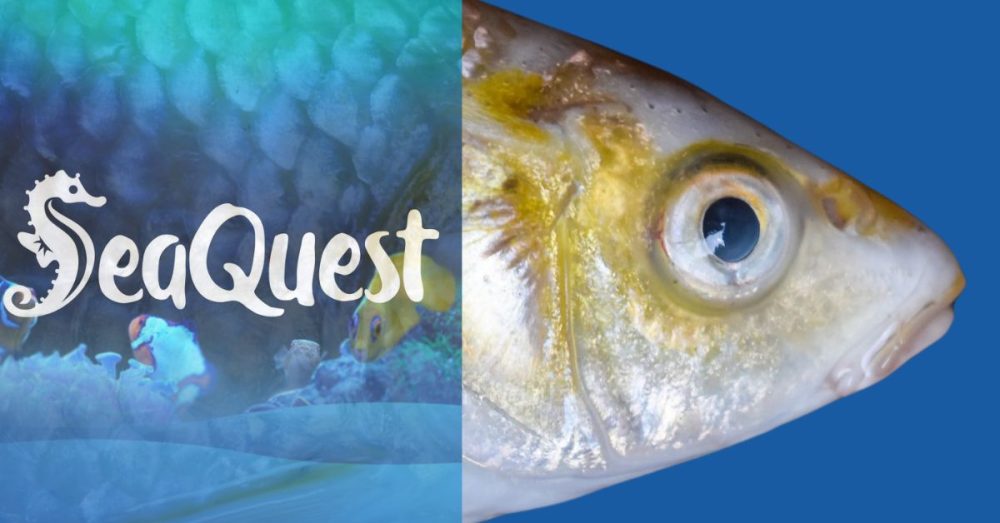A Fort Worth aquarium is under investigation after complaints of severe animal neglect.
Animal rights organization PETA said that three former employees of SeaQuest Fort Worth approached them to expose the alleged suffering and abuse of dozens of animals.
The former employees reported the deaths of two nurse sharks who likely starved to death due to extreme stress and being cramped into a small tank with ten other animals, per PETA.
When the employees witnessed that the two sharks had stopped eating, they reported their concerns to SeaQuest, who allegedly brushed off the employees.
One of the nurse sharks was found convulsing by the employees the night that it died.
“We actually sat there and tried to figure out ways to deal with that for the next six hours or so,” Riley Peninger, one of the former SeaQuest employees, told NBC 5 DFW. “Every single solution that we had was shot down.”
After receiving his marine science degree, Peninger worked at SeaQuest as a member of the marine husbandry team from February to June of 2024.
Additional video footage supplied to PETA by former employees shows countless marine animals deceased in plastic bags after being transported from Colorado to Fort Worth.
“The fish were shipped in black trash bags or other coolers. There was no effort made to ensure the fish were shipped within the right parameters for the species. No heat packs were provided. Water temperatures were as high as 62 degrees and as low as 54 degrees in bags for tropical warm water species, which is unheard of,” a former employee told PETA.
“Three grey smooth-hound sharks shipped in black trash bags died. The bags were so small their bodies were curved. Very little water was put in each bag. They all suffocated to death. All the rays were shipped in black trash bags, and all but two died. About fifty other fish were shipped, and all but eight died.”
Several koi fish were also killed at the aquarium after being left in a tank with toxic levels of ammonia for multiple hours. The former employees claimed a supervisor did not approve of moving the fish from the tank, resulting in them suffering from ammonia burns.
SeaQuest also instructed one of the former employees to put several gourami fish in a tank that was too cold for their natural temperature, leading to multiple deaths.
Additionally, a black reef shark lost its ability to swim after being kept in a tank that was too small. When the former employees asked a supervisor to find a bigger tank for the shark, no action was taken.
“I really care for these animals. It’s hard to watch all these animals suffer all the time and go into work every day and walk past all these tanks and just know there’s something that could be done,” Peninger told NBC 5.
Fort Worth police told NBC 5 that an investigation is currently underway.
The U.S. Department of Agriculture is also investigating the complaints. Reports show that the FDA’s last three inspections of the aquarium noted an overcrowded otter enclosure and sanitation problems, among other complaints.
Other SeaQuest locations have come under fire in the past for abuse allegations. In February, a SeaQuest in California was exposed for neglecting dozens of animals under the aquarium’s care. Reporters from ABC 10 witnessed animals living in “refrigerator-size enclosures” with no windows or sunlight.
In 2022, SeaQuest released a statement after several former employees provided news outlets with photos and videos of sick and injured animals at a Woodbridge, New Jersey location.
“Throughout its history, SeaQuest has had 10 locations and is host to millions of visitors each year. With hundreds of employees and thousands of animals, injury and mortality, though very rare, exist. We continually implement training and procedures to ensure we are working to prevent citations. All locations complete USDA daily and weekly audit checks in keeping with all regulations and requirements,” said SeaQuest on their website.
Earlier this month, SeaQuest CEO Vince Covino resigned from his position.
“SeaQuest needs to do far more than replace its current CEO to improve conditions for the many animals exploited at its pathetic indoor exotic animal petting zoos,” said Laura Hagen, the Director of Captive Wildlife for the Humane Society of the United States, in a statement obtained by ABC.
“The company denies countless animals their most basic needs, including access to fresh air and natural sunlight, proper nutrition and medical care, and the freedom to not be handled by the public and bombarded by loud noises and chaos all day long.”
The Dallas Express reached out to SeaQuest for comment but did not receive a response by the time of publication.


